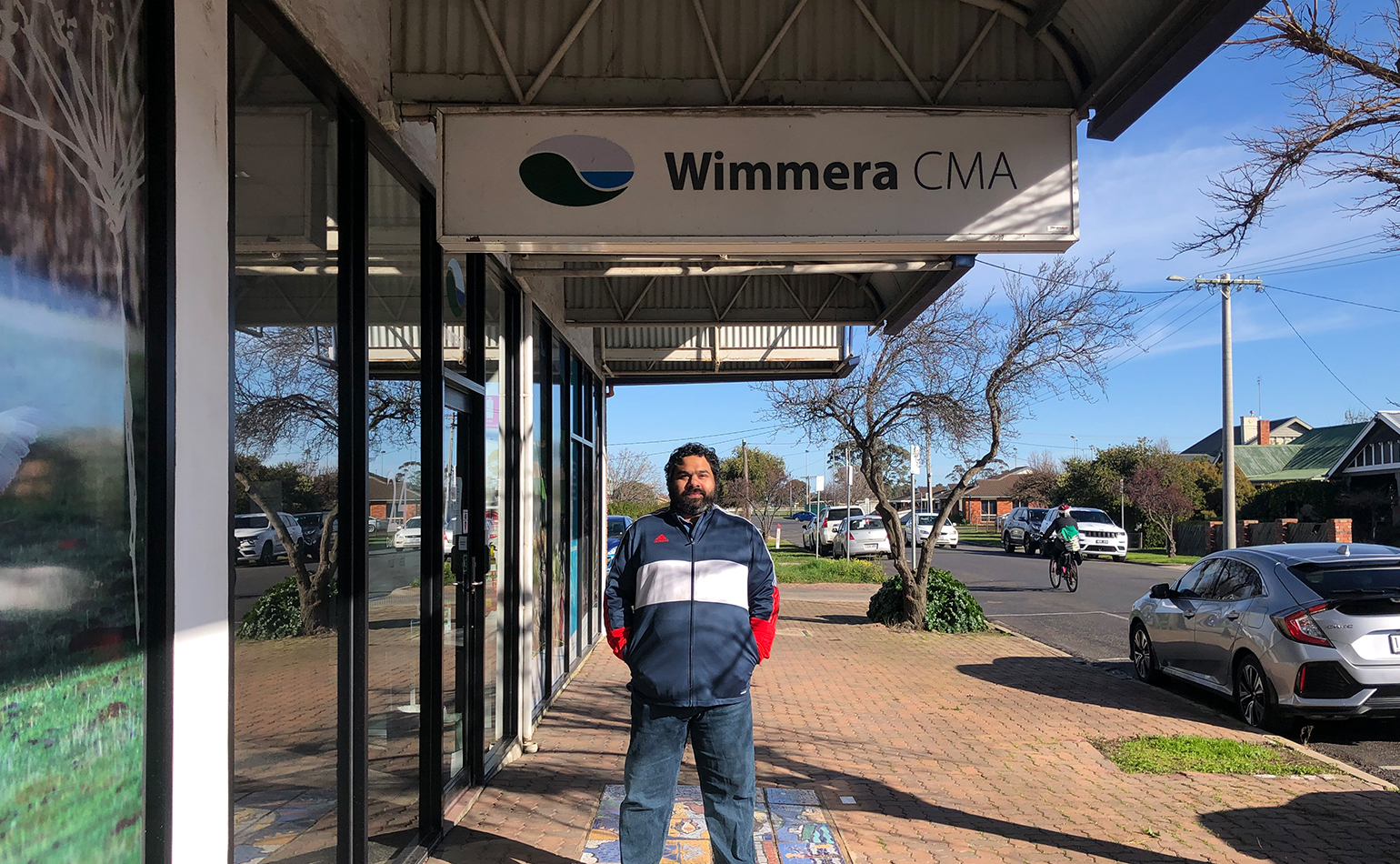Arif at Wimmera CMA where he is working on his PhD
Soil CRC PhD student Mohammed Arifur Rahman (Arif) is using his software engineering expertise to address the challenges of understanding carbon sequestration. Communications Manager Katherine Seddon found out more.
What is your PhD project aiming to do?
My project is called Digital mapping of soil organic carbon sequestration potential at the farm-scale. I am developing a cost-effective methodology for farmers to understand the carbon sequestration potential of their land. I will do this using data to create a 2D map of their farms. This means they can identify the priority areas for carbon sequestration, which will encourage more participation in the carbon emissions abatement programs.
Since it is a data-driven project, my primary focus is making the best use of the available data. For example, in Australia, a few government organisations provide maps relating to carbon sequestration on a regional scale or national scale. To produce a carbon sequestration potential map for a farm, I will combine the downscaled version of these maps with local environmental data and satellite imagery. Also, this project requires extensive analysis of the traditional process-based models to utilise their capabilities in the solution.
Are you working with different participants in the Soil CRC?
Wimmera CMA co-sponsors my scholarship, and the CEO, Dave Brennan, is my co-supervisor. Although my campus is in Ballarat, I moved to Horsham in the Wimmera to work more closely with him and I am finding it extremely helpful. In addition to developing my technical capabilities around carbon sequestration, my co-supervisor and other staff at Wimmera CMA are helping me to solve the problems. I have also been working with the scientists at Agriculture Victoria on various issues including soil science, remote sensing, and satellite imaging.
What benefits are there to being part of the Soil CRC PhD student cohort?
The most obvious benefit is the generous scholarship, which is allowing me to put all my efforts and attention into my research. Also, I can collaborate with many other students like me who are working on similar problems. The workshops arranged by Soil CRC are also very helpful as is the support on a wide range of issues. In the later years of my PhD, I am sure I will get more technical and logistics support from the collaboration with the students and experts.
What did you do before you began your PhD?
After finishing my Bachelor of Computer Science with Summa Cum laude distinction, I worked as a Software Engineer for 14 years before I began my PhD. The industry experience allowed me to develop excellent programming and time-management skills, which is very helpful in my PhD.
In my previous industry career, I was building technical solutions. Before that, during my undergraduate, I was learning theories. As my PhD project is very industry oriented, I am doing both, learning theories and using them to develop real-world solutions.
Every day, I am learning about recent discoveries and developments, and getting the opportunity to contribute to mitigating the gap in the existing solutions. In addition, I am learning new research skills and I am in the process of becoming an independent researcher, which is very exciting. Also, it is highly motivating that the successful completion of my PhD will be financially beneficial to Australian farmers and will help reduce greenhouse gas emissions, which will hopefully contribute to making the world a better place.
PhD student: Mohammad Arifur Rahman (Arif)
University: Federation University

